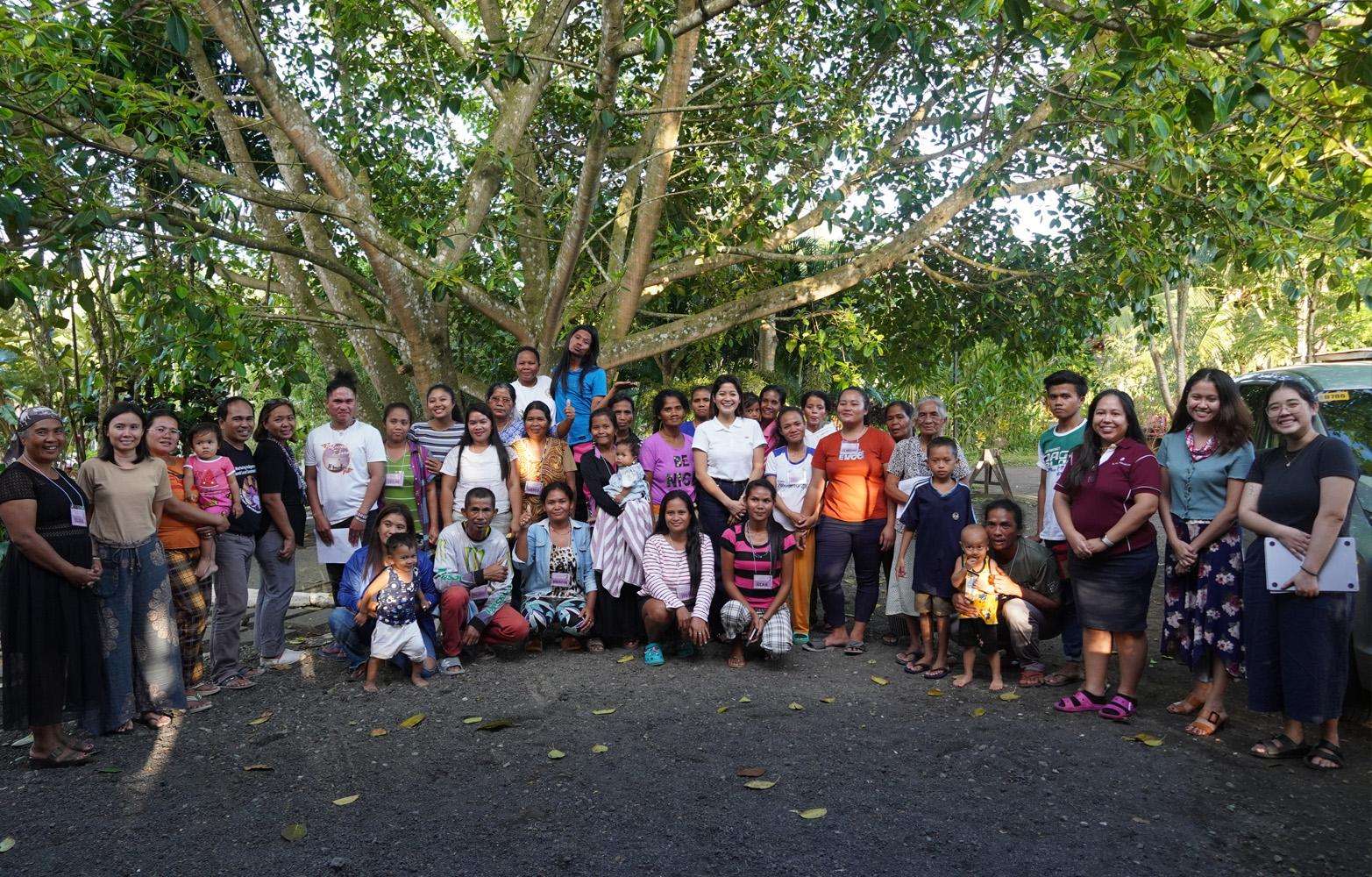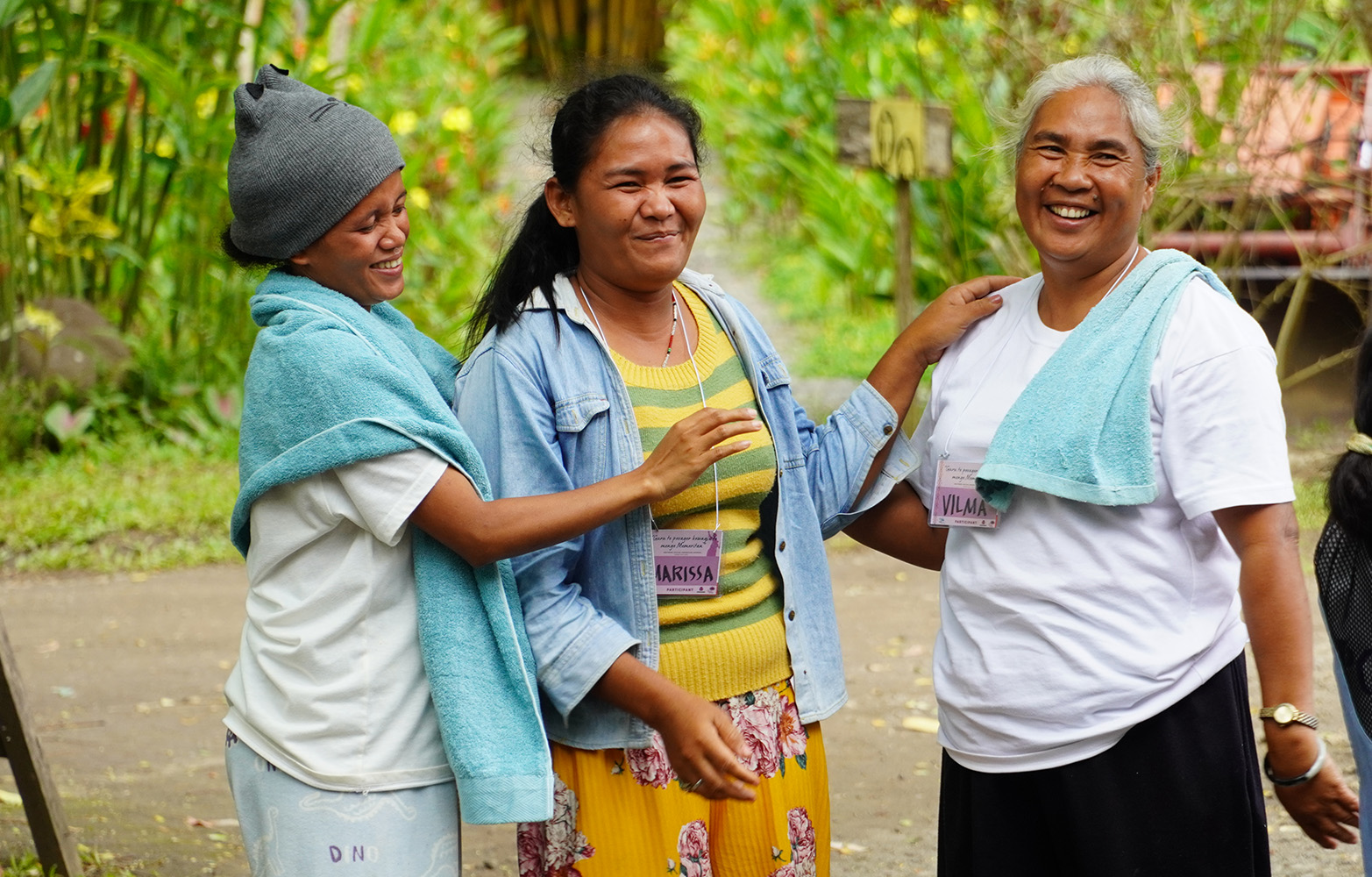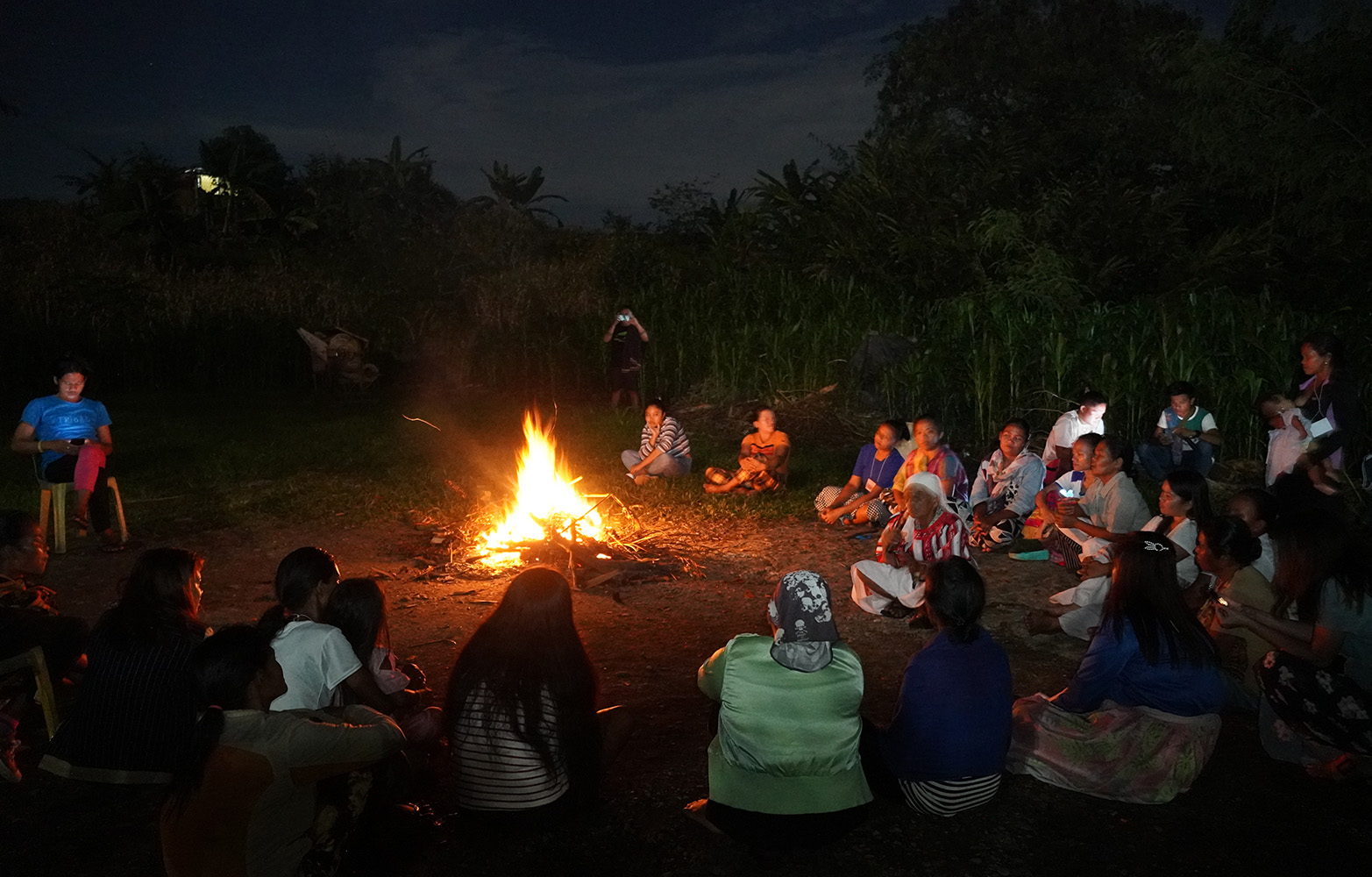
- admin
- 02 October 2023
- Feature
Samdhana, TAF hold first ever paralegal training for Menuvu women in Southern Bukidnon
For the 30 mostly Menuvu memeritan (women) participants from 10 communities belonging to CADT (Certificate of Ancestral Domain Title) 202 and CADT 206 in Southern Bukidnon, it was their first time to join a training. They shared mixed feelings of joy, excitement, and anxiety for what they considered “talagsaun” or a rare opportunity.
Responding to the question “When can you say that you live a happy and meaningful life?,” one Menuvu woman participant said: “For us, being able to attend trainings like what we are doing right now is making us happy and helping us live a meaningful life.”
In Menuvu: “Guru te pevager kewagiv te menge Memeritan" (improving indigenous and local women’s access to justice and resilience) was the theme of the basic paralegal training held in Pangantucan, Bukidnon on August 28-31. The training covered women’s rights, the Indigenous Peoples Rights Act, forest and environmental laws, the Bill of Rights, and protection laws.
The resource persons, all women lawyers based either in Bukidnon or Cagayan de Oro, presented cases or situations for the participants to reflect and comment on, and identify the agencies they should be referred to.
Aside from imparting knowledge of these laws, the training aims to capacitate the participants to respond to concrete situations that require legal actions, such as preparing legal documents, and deepen their understanding of their context and situation through reflection and sharing. Marianne Itol of The Asia Foundation (TAF), which facilitated the training together with Samdhana Institute, emphasized that they aim to enable women to stand up for their rights and defend their ancestral domain and forests.
Sabrina Garcia-Balais of Samdhana said the inputs were the “basic of the most basic,” that is, focused on the concepts of human rights that would serve as points for reflection by the participants vis-à-vis their tribe’s customary law. Indeed, the erstwhile alien concepts led to questions on the dynamics between the formal legal system and the tribe’s cultural norms concerning marriage or civil relations and familial matters.
Other participants shared their insights that a happy and meaningful life equates to living in a healthy environment, enjoying food security, having a complete family, and being recognized by the government. The last point alluding to the approval of their CADT applications.
For some participants the activity served as an awakening. They said, “Karon pa mi kahibalo sa among katungod” (It’s only now that we came to know our rights). If not for the training, they wouldn’t have known that freedom of speech, for instance, is a basic right.

The participants linked the right to freedom of speech to the reality that Menuvu women generally submit to tradition when it comes to marriage. They shared that marriages within the tribe, traditionally arranged by the parents or elders of the man and woman, are consummated through a sala (a ritual) where women may not speak up even if they don’t consent to it.
But Menuvu leader Datu Benjie Ompigan clarified that in the present context, women in the tribe have the right to speak their mind. “Maybe the understanding of customary law just isn’t that clear yet,” he added.
Sabrina said they had to be circumspect in dealing with such questions. To put things in perspective, she said, they invited Datu Benjie to sit in for the whole duration of the training to serve as a resource person on questions relating to customary law.
She also made it clear to the participants that while the training focused on Philippine laws, they should also examine what elements of customary law that align with human rights concepts and laws.
Next steps
Sabrina said the paralegal training is part of the internal capability-building program for the Menuvu women organizations in the two CADTs, which are still in the early stage of being strengthened. She, however, emphasized that more than just imparting mainstream concepts, it aims to strengthen the Indigenous Knowledge Systems and Practices or IKSP of the tribe.
She affirmed Datu Benjie’s observation that some communities are not highly aware about IKSP and customary law. She said some of them would lean more toward the formal legal system.
She cited the case of one participant, a pure Menuvu who joined a Christian sect and had since stopped any involvement in tribal affairs. The training sort of led her back to her roots. “Naa man diay ta ani,” (I realize we have this thing), that particular person said, referring to customary law and IKSP.
Nevertheless, Sabrina said the participants should be able to discern if certain cultural practices are just and equitable based on human rights standards.
“We are trying to develop a rights-based literacy for women,” she explained, adding they will hold follow-through sessions and develop their leadership capacity. She emphasized the need to hold deepening sessions on Violence Against Women and Children.
In addition, the participants are expected to echo what they have learned through their buron-buron (tribal meetings) and to apply it in their respective households. They will also be formed into paralegal teams.
Sabrina added they have linked up with the Xavier University Center for Legal Assistance (XUCLA). She said the lawyers at XUCLA and XU’s law students can teach the women in writing affidavits and letters, among other forms of assistance.
The center, which is based in the College of Law of XU, have programs that “have been developed to focus on the formation of law students towards serving the poor, marginalized, and disenfranchised sectors in society, provide legal aid to indigent clients and communities…and advance legal advocacy and policy research together with the University, government institutions, nongovernmental and civil society organizations, and various alternative law groups.”
For their part, the participants said they intend to use the knowledge they gained from the training to give it meaning and motivate others to get involved. They all emphasized the significance of buron-buron to the purpose of encouraging other women to strive for their and the broader community’s empowerment.
